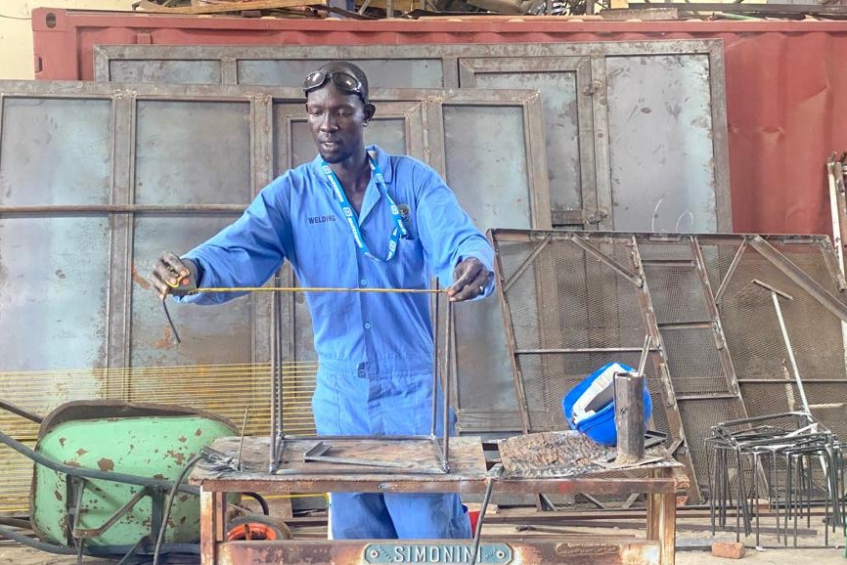
One of the students of St. Vincent de Paul during their final exams at St. Vincent vocational training center in Juba - Credit: Kafuki Jada/Eye Radio - Dec. 12, 2022
The government has been urged to take young people who committed crimes to vocational training centers, not to prison.
Stanislaus Moga Dario, the head teacher of Saint Vincent De Paul Vocational Training Center says imprisoning younger people for committing crimes is not a solution.
He urged the government to establish and support more vocational training centers for skilling youth in the country.
Dario pointed out that establishing more vocational training centers will empower young people with technical skills and help engage them in productive activities.
This, according to Dario, will minimize increasing trends of crimes in the capital, Juba, and other parts of the country.
“The right solution to the problems of gangs or niggas in Juba and some parts of the country is not by taking them to prison. If we take them to prison, then we have not come up with the right solution,” said Moga Dario.
“The right solution is to bring those young people to vocational training centers so that they can be self-reliant in the future,”
“For instance, if I arrest them and take them to prison for three or four months, after all I will release them, and they are likely to commit more crimes outside there,
“I urge the government, the city council to support and open more vocational centers here in Juba and other parts of the country,
“Let’s train these young people and dialogue with them, what do they want, what kind of training they want, because they have different talents and skills. This will help them become good citizens.”
Several reports indicate that youths constitute almost 72 percent of the population in South Sudan, yet most of them are unemployed.
The youth unemployment rate in the country is estimated at 12 percent.
Researchers attribute this to high illiteracy rates brought about by a series of civil wars, since the liberation struggle in the eighties and the recent political violence in the country.
Support Eye Radio, the first independent radio broadcaster of news, information & entertainment in South Sudan.
Make a monthly or a one off contribution.
Copyright 2024. All rights reserved. Eye Radio is a product of Eye Media Limited.